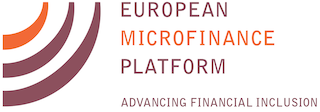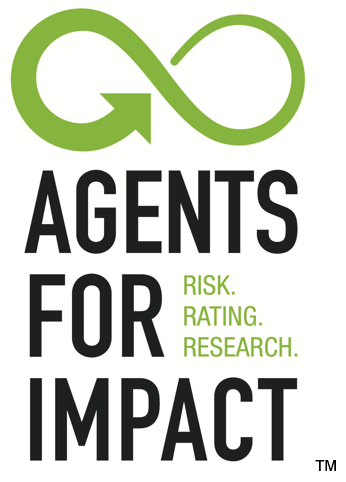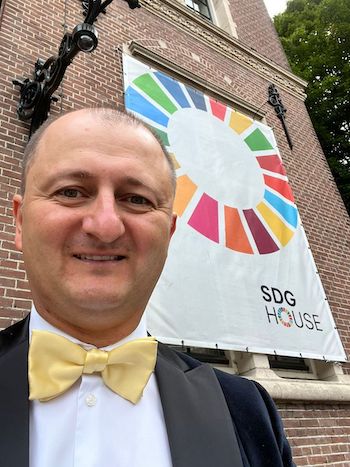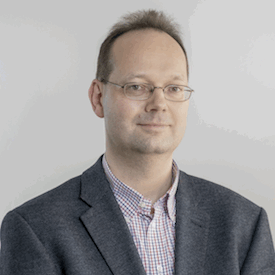 At the opening plenary of European Microfinance Week, where over 500 attendees are gathering now in-person and online, Tidhar Wald of the UN’s Better Than Cash Alliance noted that over 1 billion more people worldwide have achieved financial inclusion over the past decade. While this has helped some to boost their livelihoods, many have accessed financial services via digital services, which carry different risks than in-person services. Data protection is an obvious example, as more client data is being digitized, and fraud is on the rise. Other risks, even though well-known to providers of in-person financial services, require different
At the opening plenary of European Microfinance Week, where over 500 attendees are gathering now in-person and online, Tidhar Wald of the UN’s Better Than Cash Alliance noted that over 1 billion more people worldwide have achieved financial inclusion over the past decade. While this has helped some to boost their livelihoods, many have accessed financial services via digital services, which carry different risks than in-person services. Data protection is an obvious example, as more client data is being digitized, and fraud is on the rise. Other risks, even though well-known to providers of in-person financial services, require different
Category: Trends/Challenges
MICROFINANCE EVENT: Sanabel Conference; November 22-23, 2022; Cairo, Egypt
 Themed “Reality and the Future of Financial Inclusion in the Arab World,” this event will include sessions such as: (1) Green Microfinance in
Themed “Reality and the Future of Financial Inclusion in the Arab World,” this event will include sessions such as: (1) Green Microfinance in
SPECIAL REPORT: e-MFP Green Inclusive and Climate Smart Finance Action Group Focuses on Capacity Building
 During the opening day of European Microfinance Week today, roughly 75 members and potential members of the Green Inclusive and Climate Smart Finance Action Group met in-person in Luxembourg – and remotely – to discuss strategies for increasing access to finance that helps people with low incomes to adjust to and reduce climate change. Co-chair Natalia Realpe Carrillo argued, “This is not something extra; this responsible finance!” She went on to describe the Action Group’s work to: publish a glossary of terms for those just getting started in green lending; offer seven related training modules; continue an ongoing webinar series, which is also available on-demand; publish
During the opening day of European Microfinance Week today, roughly 75 members and potential members of the Green Inclusive and Climate Smart Finance Action Group met in-person in Luxembourg – and remotely – to discuss strategies for increasing access to finance that helps people with low incomes to adjust to and reduce climate change. Co-chair Natalia Realpe Carrillo argued, “This is not something extra; this responsible finance!” She went on to describe the Action Group’s work to: publish a glossary of terms for those just getting started in green lending; offer seven related training modules; continue an ongoing webinar series, which is also available on-demand; publish
MICROFINANCE PAPER WRAP-UP: “Remote Coaching to Prevent Dormancy Among Low-income Savers,” by Scott Graham et al, Published by WSBI
 This report addresses the phenomenon of “dormancy” in the savings accounts of new owners of financial accounts, whereby the newly established accounts go unused after initial deposits are complete. The authors describe the use of coaching – via phone calls and SMS messages – to increase
This report addresses the phenomenon of “dormancy” in the savings accounts of new owners of financial accounts, whereby the newly established accounts go unused after initial deposits are complete. The authors describe the use of coaching – via phone calls and SMS messages – to increase
MICROFINANCE EVENT: 19th Inclusive Finance India Summit; January 17-18, 2023; New Delhi, India
 This event is intended to advance dialogue on the challenges associated with financial inclusion. Although the agenda has not been released to date, last year’s iteration of the summit featured sessions including
This event is intended to advance dialogue on the challenges associated with financial inclusion. Although the agenda has not been released to date, last year’s iteration of the summit featured sessions including
MICROFINANCE EVENT: 10th Sankalp Africa Summit; March 1-2, 2023; Nairobi, Kenya
 This event will focus on mechanisms through which entrepreneurial partnerships can solve global issues. The agenda offers time for one-on-one meetings plus 40 group sessions covering topics such as
This event will focus on mechanisms through which entrepreneurial partnerships can solve global issues. The agenda offers time for one-on-one meetings plus 40 group sessions covering topics such as
MICROFINANCE EVENT: Global Islamic Microfinance Forum; November 21-24, 2022; Dubai, UAE
 Now in its 11th edition, this event is meant to increase the recognition of Islamic finance as a tool for micro-, small and medium-sized enterprises (MSMEs). Islamic finance makes use of mechanisms such as
Now in its 11th edition, this event is meant to increase the recognition of Islamic finance as a tool for micro-, small and medium-sized enterprises (MSMEs). Islamic finance makes use of mechanisms such as
SPECIAL REPORT: Jobs in International Finance
 Finance is a lucrative and highly-demanded industry. It involves managing money; as such, most jobs in finance can be demanding and have strict entry requirements. Getting a good job in finance requires great education, a Bachelor’s degree is the least requirement for any high-paying finance job. A good background in economics, mathematics, statistics, or a related field is usually necessary to get a good job in the industry. However, you can rest assured of
Finance is a lucrative and highly-demanded industry. It involves managing money; as such, most jobs in finance can be demanding and have strict entry requirements. Getting a good job in finance requires great education, a Bachelor’s degree is the least requirement for any high-paying finance job. A good background in economics, mathematics, statistics, or a related field is usually necessary to get a good job in the industry. However, you can rest assured of
SPECIAL REPORT: Agents for Impact: Well-equipped for Future Business Development
 Agents for Impact GmbH (AFI), which acts as an intermediary between investors and the world of impact investing, successfully has won FS Invest Holding as an investor. With an eye on the long-term, as of August 2022, FS Invest took a 75-percent stake in our consulting boutique, which is focused on sustainability, impact investing and financial inclusion.
Agents for Impact GmbH (AFI), which acts as an intermediary between investors and the world of impact investing, successfully has won FS Invest Holding as an investor. With an eye on the long-term, as of August 2022, FS Invest took a 75-percent stake in our consulting boutique, which is focused on sustainability, impact investing and financial inclusion.
FS Invest is part of the Helmig family’s group of companies, which is already active in several other holdings in the financial sector, including through its ATON Group.
“We  are pleased to have an experienced investor at our side that will carry Agents for Impact into the future and enable us to expand our business,” says Dr Andrij Fetsun, AFI’s CEO (pictured).
are pleased to have an experienced investor at our side that will carry Agents for Impact into the future and enable us to expand our business,” says Dr Andrij Fetsun, AFI’s CEO (pictured).
About AFI
AFI was founded in 2018 by Dr Fetsun and Ms Edda Schröder with the purpose of: (1) increasing impact investments in emerging and developing markets by building bridges between impact investors and the world of impact investing in order to enable financial inclusion for underserved populations across the world; and (2) contributing to the UN Sustainable Development Goals (SDGs) with the help of the firm’s proprietary SDG rating system, the Agents for Impact Sustainability Alignment Rating (AFISAR©) Tool.
AFISAR© helps microfinance institutions (MFIs) leverage the growing importance of strong sustainability performance vis-à?vis international investors, particularly impact investors. The rating tool analyses an MFI’s operations (at both the institutional and portfolio levels) based on a comprehensive set of
SPECIAL REPORT: European Microfinance Week Is Almost Here!
 European Microfinance Week (EMW) 2022 is fast approaching, and we’re delighted that it will be in-person again, with a hybrid component for remote speakers and participants. EMW2022 offers more than 30 sessions organised across several thematic streams, including “Financial Inclusion that Works for Women” – the topic of the European Microfinance Award 2022 – as well as green and climate-smart finance, digitalisation, funding, financial health, and social performance and impact. Other subject areas include agri-insurance, women’s leadership, fund regulation, mobile money, biodiversity, refugee finance, WASH, food security and more. To give MicroCapital readers a sense of what they can look forward to, here are some details of just three of the EMW2022 thematic streams:
European Microfinance Week (EMW) 2022 is fast approaching, and we’re delighted that it will be in-person again, with a hybrid component for remote speakers and participants. EMW2022 offers more than 30 sessions organised across several thematic streams, including “Financial Inclusion that Works for Women” – the topic of the European Microfinance Award 2022 – as well as green and climate-smart finance, digitalisation, funding, financial health, and social performance and impact. Other subject areas include agri-insurance, women’s leadership, fund regulation, mobile money, biodiversity, refugee finance, WASH, food security and more. To give MicroCapital readers a sense of what they can look forward to, here are some details of just three of the EMW2022 thematic streams:
Climate and Green Finance
Climate change represents one of the greatest issues the world faces today. While the changing climate impacts all countries, sectors and people, they are not all affected in the same ways. Climate change is particularly threatening to poor and marginalised communities. Tackling the issue requires battling on many fronts – not just on the mitigation side (minimising the actual climate change that takes place), but on the adaptation side too. The financial inclusion sector has an important role in increasing the resilience of communities most vulnerable to the effects of climate change, and EMW2022 will feature a variety of related sessions, including:
SPECIAL REPORT: October 28 is Deadline for MFIs to Apply to Partner with CGAP via “Microfinance Digitization” Community of Practice
 From CGAP (Consultative Group to Assist the Poor): “CGAP is seeking microfinance institutions (MFIs) to join its new MFI Digitization Community of Practice to collaborate on digitization efforts and add value to micro- and small enterprise finance.” Find out more in English, French or Spanish via https://www.cgap.org/news/cgap-seeks-partners-microfinance-digitization-community-practice.
From CGAP (Consultative Group to Assist the Poor): “CGAP is seeking microfinance institutions (MFIs) to join its new MFI Digitization Community of Practice to collaborate on digitization efforts and add value to micro- and small enterprise finance.” Find out more in English, French or Spanish via https://www.cgap.org/news/cgap-seeks-partners-microfinance-digitization-community-practice.
MICROFINANCE PAPER WRAP-UP: “A Brief Introduction to WASH for Impact Investors;” by Joana Afonso, Sachin Kumar, Alvaro Ma; Published by e-MFP, Aqua for All
 This report on funding water, sanitation and hygiene (WASH) cites the UN’s Sustainable Development Goal (SDG) 6 – Clean Water and Sanitation – as well as data indicating 3.6 billion people worldwide have limited access to
This report on funding water, sanitation and hygiene (WASH) cites the UN’s Sustainable Development Goal (SDG) 6 – Clean Water and Sanitation – as well as data indicating 3.6 billion people worldwide have limited access to
MICROFINANCE PAPER WRAP-UP: “The Impact Radar,” Published by UN Environment Programme Finance Initiative
 The authors of this report offer a taxonomy to help measure the positive and negative impacts of the products and services of financial institutions, with the aim of enabling these institutions to build a better understanding of various elements of sustainable development. The “impact radar” includes a range of “impact areas” and constituent
The authors of this report offer a taxonomy to help measure the positive and negative impacts of the products and services of financial institutions, with the aim of enabling these institutions to build a better understanding of various elements of sustainable development. The “impact radar” includes a range of “impact areas” and constituent
MICROCAPITAL BRIEF: In Pakistan, Microfinance Portfolios Rise 7.5% Quarterly to $2b
 According to data attributed to the Pakistan Microfinance Network, microfinance providers in the country grew the number of savers they serve by 2.9 percent to 87 million from March 2022 to June 2022. During that period, however, the aggregate amount saved by those customers fell 8.9 percent to PKR 391 billion (USD 1.8 billion).
According to data attributed to the Pakistan Microfinance Network, microfinance providers in the country grew the number of savers they serve by 2.9 percent to 87 million from March 2022 to June 2022. During that period, however, the aggregate amount saved by those customers fell 8.9 percent to PKR 391 billion (USD 1.8 billion).
Meanwhile, microlending in Pakistan is growing unambiguously, and it is expected to continue its upward trend as new regulations recently
MICROCAPITAL BRIEF: Themed “Inclusive Growth in a Digital Era,” Financial Inclusion Week 2022 Offers 180 Virtual Sessions, October 17-20
 For the eighth year, the Center for Financial Inclusion, a program of the US-based NGO Accion, is organizing Financial Inclusion Week, an opportunity for all stakeholders to attend virtual sessions – both live and on-demand – at no charge. The theme for 2022 is “Inclusive Growth in a Digital Era,” with sessions covering 14 topics such as Climate Change, Client Protection,
For the eighth year, the Center for Financial Inclusion, a program of the US-based NGO Accion, is organizing Financial Inclusion Week, an opportunity for all stakeholders to attend virtual sessions – both live and on-demand – at no charge. The theme for 2022 is “Inclusive Growth in a Digital Era,” with sessions covering 14 topics such as Climate Change, Client Protection,
MICROFINANCE EVENT: Africa Fintech Summit; November 2-4, 2022; Cape Town, South Africa
 The eighth edition of this event offers attendees 21 sessions presented by stakeholders representing fintech [financial technology] firms and investors overseeing total capital of USD 4.5 billion. The detailed event program is yet to be announced, but it is to include
The eighth edition of this event offers attendees 21 sessions presented by stakeholders representing fintech [financial technology] firms and investors overseeing total capital of USD 4.5 billion. The detailed event program is yet to be announced, but it is to include
SPECIAL REPORT: Christoph Pausch of e-MFP on European Microfinance Week 2022, Luxembourg & Virtual, November 16-18
 MicroCapital: European Microfinance Week (EMW) 2022 will be in-person for the first time in 3 years. What can we expect?
MicroCapital: European Microfinance Week (EMW) 2022 will be in-person for the first time in 3 years. What can we expect?
Christoph Pausch (pictured): We’re very excited to be going back to an in-person conference at the beautiful Abbaye de Neumünster in Luxembourg. For the last two years, EMW has been virtual, and we are very proud of how both editions went, but – as I think everyone agrees – an online conference, however professional and comprehensive, can never entirely substitute for meeting in-person. You cannot fully replicate the richness of discussion within a room or the opportunities for exchange, debate and networking that gathering face-to-face allows.
You’ll see some innovations at EMW2022, as we’re taking much of what worked over the last couple of years and incorporating it into the in-person event. Among other things, that means some sessions will be in a hybrid format, so attendees and speakers who cannot come to Luxembourg can take part. Also this year, the conference proper starts on Wednesday at lunchtime, so that our opening will be timezone-suitable for more remote participants.
MC: What range of sessions can attendees choose from?
CP: As always, EMW sessions have been put forward largely by our members and organised across several thematic streams, such as “Financial Inclusion that Works for Women” (the topic of the European Microfinance Award), climate-smart finance, digitalisation and
SPECIAL REPORT: Agents for Impact Sustainability Alignment Rating (AFISAR©): Applying a Gender-smart Approach in the Microfinance Sector
 UN Sustainable Development Goal (SDG) 5, “Achieve Gender Equality and Empower All Women and Girls,” is not only a standalone goal but is inextricably linked to the other SDGs. Though moving toward gender equality has long been associated with achieving social or political goals, its proven economic benefits remain under-appreciated. According to the World Bank’s 2021 Global Findex Database, more than 1 billion women worldwide still lack access to the financial system. In fact, women make up the largest unbanked population in the world, with more than 70 percent of woman-owned small and medium-sized enterprises estimated to have inadequate or no access to financial services. The financial gap just for women-owned formal small businesses is estimated to be USD 300 billion.
UN Sustainable Development Goal (SDG) 5, “Achieve Gender Equality and Empower All Women and Girls,” is not only a standalone goal but is inextricably linked to the other SDGs. Though moving toward gender equality has long been associated with achieving social or political goals, its proven economic benefits remain under-appreciated. According to the World Bank’s 2021 Global Findex Database, more than 1 billion women worldwide still lack access to the financial system. In fact, women make up the largest unbanked population in the world, with more than 70 percent of woman-owned small and medium-sized enterprises estimated to have inadequate or no access to financial services. The financial gap just for women-owned formal small businesses is estimated to be USD 300 billion.
In the absence of financial tools, women face difficulty generating income, boosting savings, growing businesses and improving the living conditions of their families. If the ambitious targets set within the SDGs are to be achieved, then a concerted effort is required to
